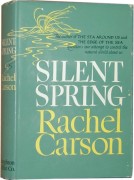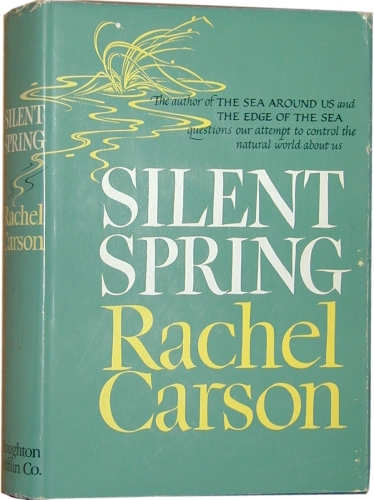 You are invited to our next 6 Great Books in the Library discussion event. An opportunity to discuss some of our most influential books with Humanities and Creative Arts scholars from UNE.
You are invited to our next 6 Great Books in the Library discussion event. An opportunity to discuss some of our most influential books with Humanities and Creative Arts scholars from UNE.
Tuesday, 02 September 2015, 5.30-6.30pm in the Armidale Dumaresq Library
Rachel Carson’s, Silent Spring – In conversation with Robyn Bartel and Jennifer Clark
Credited with inspiring the modern-day environmental movement Silent Spring (1962), by Rachel Carson, challenged readers to acknowledge the effects of human behaviour on the Earth. As human activities continue to have a negative impact on our environment, it is timely to reflect on the legacy of this great book, and the lessons it still holds for us.
Presented by historian of the 1960s, Professor Jennifer Clark, and legal geographer, Dr Robyn Bartel, who is a leading authority on environmental law and the interactions between humans and landscape, and co-founder of AELERT, the Australasian Environmental Law Enforcement and Regulators Network.
By: Louise Noble

I think the value of ‘Silent Spring’ (1962) by Ms Rachel Carson is that it examples the fact that everything in nature is interwoven and interconnected. If you spray DichloroDiphenylTrichloroethane (DDT), it will have an impact on a wide range of factors. This, it was later found, includes the health of human babies. In other words, it puts a lie to the reductionist “one action has one effect” mentality applied by industry based science. One action has many outcomes and that reality does not change just because one experiments with a control group on the side under laboratory conditions.